FROM THE FEBRUARY ISSUE: HOW TO SUCCEED IN BUSINESS, AND IN LIFE!

The entire MR team proudly presents our February 2025 issue. If you haven’t received a hard copy, please page through our digital version, and we’ll continue to post individual stories here on MR-mag.com. If you haven’t been getting MR in print, be sure that you are on our mailing list for future issues by completing this form.
Mark Weber interviews ABG founder/chairman/CEO Jamie Salter
Mark Weber: I started this CEO Exchange series in partnership with MR Magazine because I believe CEOs run the world. The U.S. now has a CEO president, a business leader who heads our country. With big positions come big responsibilities: CEOs must ensure the companies they represent provide for the owners, shareholders, stockholders, and all constituents that benefit from well-run companies.
I’m fascinated by CEOs. I’ve been a CEO twice in my career, at PVH and at LVMH Inc. I was also Chairman and CEO of Donna Karan, and I now do regular podcasts for iHeart Media WOR in New York. I understand what it takes and what it feels like to be a CEO. I’m particularly pleased to have the first interview in this series with a gentleman named Jamie Salter, CEO of Authentic Brands Group, one of the most important (if not the most important) companies in fashion right now. Authentic’s influence accounts for more than $32 billion in worldwide retail sales, accomplished within a 15-year period.
How did one man have the vision to create this global empire? To find partners to manage and operate these companies and create a consistent financial return? Tens of thousands of people have jobs in the USA and around the world, thanks to Authentic and its leader, founder, and CEO Jamie Salter. Jamie, how did you do it?
Jamie Salter: First of all, I didn’t build Authentic; the company was built by the people who work here together. I believe that’s really our special sauce: we all know what each of us is doing all the time; we can fill in for each other as needed. So, if I’m working with your son, Jarrod Weber, or with Marc Rosen or any Authentic exec, the minute I plan that meeting, I pick up the phone and get someone else involved right away. Why is that important? Because any conversation you’re having with someone at Authentic will inevitably be communicated to another person five minutes later. We have a saying here: Tell everybody everything. There are no secrets.
Mark: Do you want to tell the story of how we met, or should I?
Jamie: You were CEO of PVH; I came into your office wanting to license Izod for footwear, and you wanted a big guarantee. We eventually signed the contract, but when it wasn’t going so well, I went to find you at the PVH offices to discuss the problem. And you said, “I’m sorry you’re having a problem with the GMR, but unfortunately, you signed a contract. If you want out of that GMR, I’m happy to let you out of it, but it will cost you.” I think we settled on two or three years of the minimums on the contract. I clearly had to write a check to get out of that deal.
But as an aside, I’m happy to say that the apple doesn’t fall far from the tree: your son Jarrod (Global President of Sports and Lifestyle, a talented executive who’s worked for Authentic for about 11 years) feels the same way you do and holds our licensees to the contract. This is important. The licensing business is like the real estate business: when they rent out their spaces, they expect their tenants to pay their rent. If their tenants don’t pay, they get evicted. It’s rarely a friendly conversation. Fortunately, Authentic has a default percentage of less than half of one percent. But those conversations do happen from time to time.
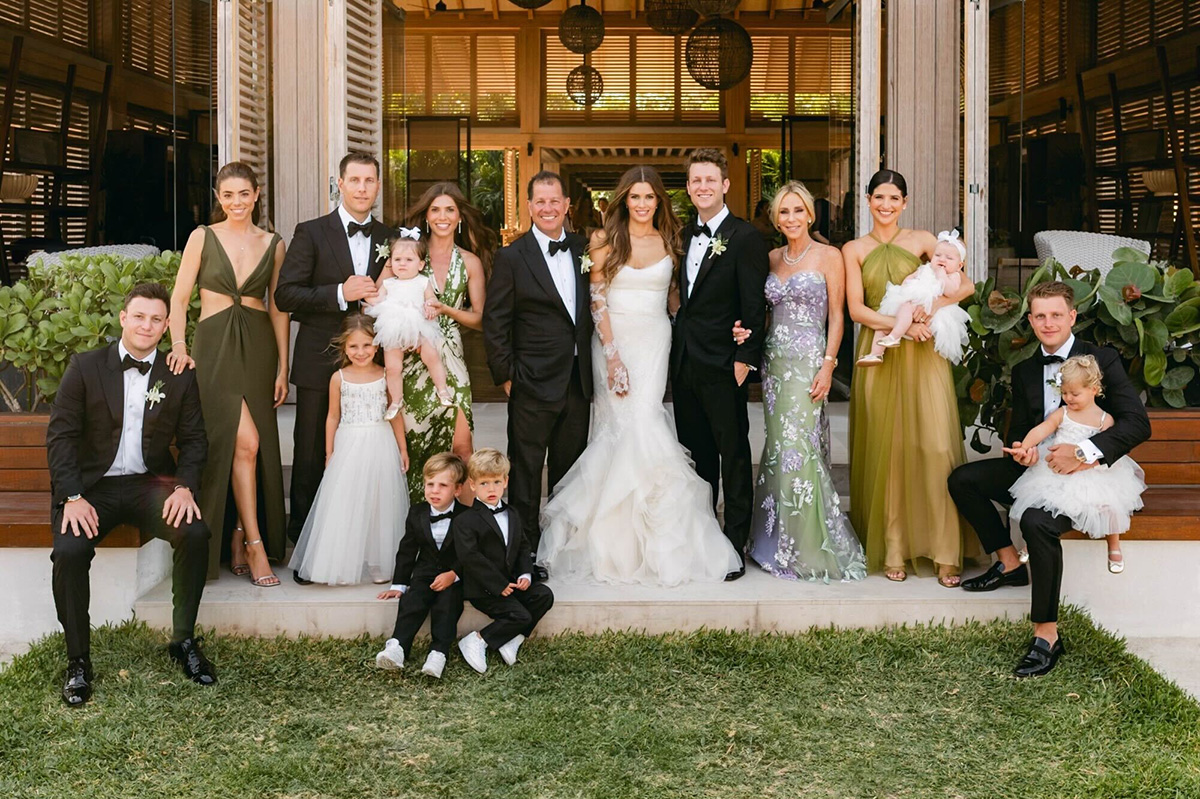
Mark: Thanks for mentioning my son. How’s he doing?
Jamie: There’s no doubt there are days when I think he should get a haircut… But seriously, he’s amazing! What you’ve taught him about running a business has clearly sunk in. It’s also clear that you’ve been teaching him about golf… He’s too good!
Mark: When I first applied for a job at PVH, the guy who interviewed me asked me what I wanted to earn. I gave him some crazy number, and he said, “Let me teach you something. You go to an interview, and they ask you about money. You tell them money doesn’t matter. You tell them what matters is that you learn the business from a top company, and in time, the money will take care of itself.” But I grew up as a corporate exec: I knew I was going to get a paycheck; I knew I was going to get stock in the company; I knew I was secure. But you, Jamie, weren’t you ever scared about starting your own business and having to figure out where the first dollar would come from?
Jamie: You’re going to laugh, but when I had my first job, a paper route, I made a deal with my brothers that if they delivered the papers for me, I’d give them the money I received from the paper company, but I’d get to collect the tips. So right from my first job, I figured out how to make pretty good money.
I can also tell you that never in my career did I spend more than I made. I didn’t understand what EBITDA was until much later, but I always thought that if you made money after you paid your taxes, that’s how much money you made. I didn’t understand leverage until I started Authentic, but I’ve always been a person who lives within his means. When people ask me why Authentic does as well as it does, it’s because we’ve never over-leveraged the company. In fact, we have the lowest leverage today that we’ve ever had. Although private equity might disagree (they like to take money out…), the fact is that we’re leveraged at 2.3x when we could leverage the company at almost twice that. Based on how much money we make, we could take close to $3 billion off the table right now if we wanted to go where most brand management companies are leveraged.
I’ve always been that person who, if I have money, might buy something, but if I don’t have money, I wouldn’t even think about it. I’ve lived my whole life that way, and I can tell you that I can’t think of a moment in my life when I was financially strapped. Maybe once, way back when I was running a company called Gen-X, which I owned. We were starting to get a little over-leveraged. But that’s because business was going through the roof, and we were trying to finance everything. My CFO came to my office and said, “No more growth. You need to slow down, Mr. Salter, so we can catch up.” That was the only time things got a little tough — and a year later, we sold the company for a lot of money. So that was good advice from my CFO…
Mark: My father-in-law used to say, “Make a dollar, save two, let the money work for you.” How do you find people to invest in your company?
Jamie: That’s the part no one really understands. We’ve never taken money, other than from Leonard Green 15 years ago, when we raised $50 million. I put in $20 million, they put in $30 million, and we never drew down. All these transactions you hear about by BlackRock and other great sovereigns and private equity firms — they’ve just been buying and selling from each other. Where these big investors have been coming in, it’s been on secondaries, not primaries. We have self-financed this company from day one.
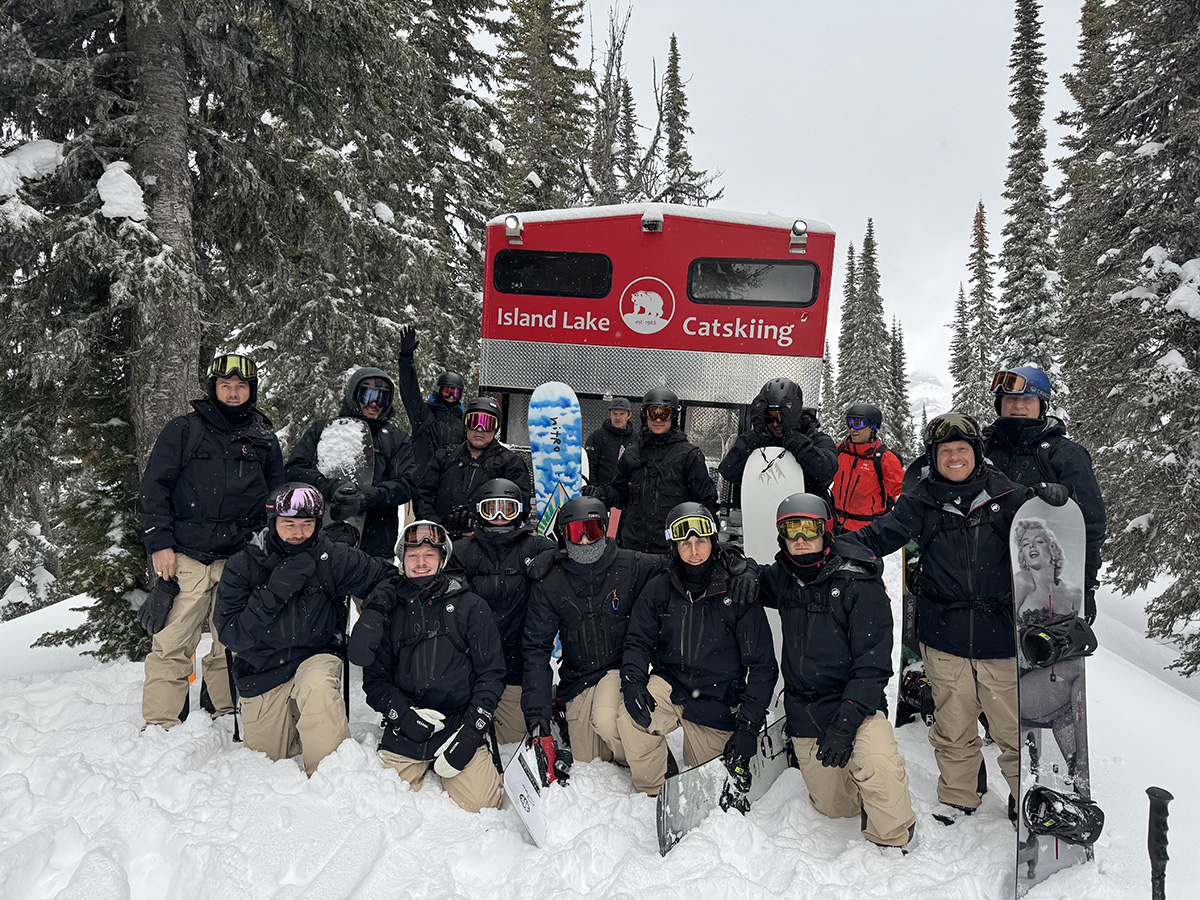
Mark: How do you contend with investors coming in and inspecting the return every two, three, or five years?
Jamie: We’re very lucky: the returns have been outstanding, around 25–30% per year. Can we continue to give these types of returns to investors? I think we can, because the deals we make are getting bigger. The question is, how big can we get? I think we can get a lot bigger. Whereas we started out buying smaller companies, we’re now buying companies worth $2.5 billion.
Mark: Is it more difficult buying a billion-dollar company than a $100 million company?
Jamie: As my friend Michael Rubin would say, they’re just zeros. Buying a big company is the same amount of work as buying a small company. Actually, large companies are less work because they’re more established. It’s easier for them to convert to our model and for us to license them around the world.
Mark: Is it more pressure making the giant deals?
Jamie: Most of my pressure comes from my wife, when she talks to me about ‘balance.’ She’ll say, ‘Jamie, you’re in the room, but you’re not really present. You’re looking at your emails; you’re on the phone. You’re not going to get these moments with grandchildren again, so you need to be in the moment.’ I know she’s right; she’s always right. And as I get older, I’m increasingly convinced that I need more balance in my life… Fortunately, I can rely on my terrific Authentic team for backup.
Mark: Where did you first get the idea to build a business with all profits coming from licensing?
Jamie: From PVH, from you! You were the master; you perfected licensing. The only difference is that I decided to license the core product in addition to specific categories. Michael Kors is a great example. Laurence Stroll is a fan of mine and obviously an early adopter of the licensing business. Tommy Hilfiger is another friend and early adopter. When I looked at PVH to study how they made their money, it was instantly clear that they made it in licensing. But they weren’t licensing the core product. I believed that if you found the right partner—a best-in-class partner—why couldn’t you also license the core?
People looked at me and said, “No, you won’t be able to do that because you can’t control the DNA of the brand.” And I said, “Yeah, we can. I mean, Disney controls their brands. You can’t change Mickey Mouse’s ears, right? So why don’t we just put together a great rule book?
We’ll create it, we’ll give you all the rules of the game. We’ll control the distribution. We’ll give you the right brand books. We’ll give you the DNA. We’ll control all the marketing. We’ll do everything that Michael Kors did, that PVH did, except we’re not going to own the inventory, and we’re not going to design the product.”
So it’s really simple: we sign a contract, we license out the brand. We produce nothing, but we control everything. We control the distribution, the marketing, and what the product looks like…
Mark: Why wouldn’t the brands just do that themselves?
Jamie: Ah, that’s a good question. The reason they can’t do it aswell themselves is because when we buy these brands, we license them out to best-in-class companies, by category, by territory. We know all the best partners around the world, so when we buy a brand, we know who’s going to be best at Champion team sports, Champion footwear or Champion socks. It differs by territory; the key is that the brand remains cohesive across the globe. Also, while most companies have five or 10 people in licensing, we have 525 employees worldwide. From Monday morning at 9:00 a.m. through Friday afternoon at 5:00 p.m., they are thinking about licensing.
Mark: How do you navigate being in one retailer versus another? Consumers are relatively consistent when they buy batteries, but in fashion, it’s a little more complicated.
Jamie: We go where the consumer goes, and that changes. TJ Maxx used to be a dirty word in the apparel business; there was a certain stigma attached to selling to them. Then Ralph started selling to TJ Maxx, (and opening his own outlet stores) and the stigma was gone. Today, distribution is getting tighter, and it’s changing: there are clubs, there are off-price retailers. Department stores are having a tougher time. Some of the independent, omnichannel stores are doing well. And there’s this new company—have you heard of it? Ten years ago, brands were scared to sell on Amazon; now, it’s the first place people search to find what they want. If it’s not on Amazon, people might think it’s not a good brand, right? We follow where the consumer goes, which is why our model is a good one. We don’t have a lot of anchors holding us down; we can move quickly and credibly.
Mark: I’m a Yankee fan, and I’ve noticed that you’re promoting Reebok in Yankee Stadium. Can you talk a little about where you like spending money?
Jamie: Unlike other brand management companies, we’re big spenders on marketing. We’ve learned that when we spend, our partners spend too. In fact, for every dollar we spend, our partners spend five. So the good news is, yes, we spend money, but our partners spend more. We’re achieving a five-to-one return on every marketing dollar we spend. brand. By the time we make the bid, we’re about 85% confident of the outcome.
Mark: What’s the one that got away from you? Was it Martha Stewart?
Jamie: We’ve had two opportunities to buy that brand and we passed on both. We didn’t pass because Martha Stewart is a bad brand—we think it’s a fantastic brand. It just didn’t fit our model of what we wanted to do at the time. However, we’ve learned a lot since acquiring Sports Illustrated, so if somebody brought us the Martha Stewart brand today, we’d probably take it.
Mark: What brand that you don’t own would you most like to acquire? Under Armour?
Jamie: I think it’s a great brand and completely undervalued. And you know I’m a cheerleader—I want them to succeed. Some people might assume I’d want a competing brand to fail so I can buy it for less money, but that’s not how we operate. We want everyone to succeed because, at the end of the day, the more brands that succeed, the better the overall business becomes.
“WE HAVE A SAYING AT ABG: TELL EVERYBODY EVERYTHING. THERE ARE NO SECRETS HERE.” — JAMIE SALTER
Jamie: The other thing that’s incredibly different here: we have about 85 or 90 people in marketing. Clearly, marketing today is driven by social media and digital platforms. Fortunately, although we didn’t have much money 15 years ago, we nonetheless invested in an incredible digital platform. We understood social media better than anyone in the apparel, accessory and footwear space.
Mark: To what extent has your low-leverage strategy contributed to Authentic’s success?
Jamie: To a tremendous extent! When we bid for a deal, we bid with money ready to go. It goes back to my philosophy: if you don’t have the money, don’t make the bid. So we always have the money before we make the bid—that’s number one. Number two: we have one of the best teams in the business, capable of figuring out where we can license globally.
Also important: when we have a good feeling about a brand, we’re constantly talking to our global partners about it. We start thinking about the brand long before we bid for it. We’ll actually build a model in advance so we know exactly where we might take that You know the debt market is pretty high today, right? And a lot of companies borrowed money at low rates five or seven years ago.
Well, that debt is coming due over the next couple of years, and few companies will be able to refinance at those low rates. This will put enormous pressure on these companies. We’ve already seen it start to unravel at certain companies that had to sell a hyped-up brand in order to raise capital to reduce their debt load. To sustain interest rates at seven or 7.5 percent, other companies might have to do the same. If they’re earning 10 percent, it’s kind of hard to make the math work.
Mark: MR readers want to know: what is your take on the future of men’s fashion?
Jamie: I believe we’re going back to dressing well. Look at what’s going on with kids right now. We had an era of ripped jeans and sloppy clothes, but we’re moving away from that, getting back to dressing more carefully. I like the men’s business because it’s more stable than the women’s: you don’t have to change the fashion as often. What’s more, men are incredibly loyal to their favorite brands, and they don’t return purchases as often as women do. I believe
“FROM 7:00 A.M. MONDAY THROUGH 5:00 P.M. FRIDAY, ALL WE THINK ABOUT IS LICENSING.” — JAMIE SALTER
menswear is a great business to be in today: guys feel better when they dress better.
Mark: Among your 50 or so brands, do you have an absolute favorite?
Jamie: Marilyn Monroe. She’s the gift that keeps on giving. And I think that with AI in the spotlight, we’re going to put Marilyn back into the movie business. She’s not our biggest brand by any means, but she’s one of the first brands we bought, so she’s close to my heart. You can go to my house and see Marilyn everywhere. When people ask why, I say it’s because Marilyn built that house, she really did.
Our biggest brand, however, is Reebok: I grew up with Reebok footwear, so I have a huge love for that brand. I also love our board sports brands: Quiksilver, Billabong, Volcom, Roxy, Spyder, because I grew up in the action sports business. At the end of the day, I look at all 50 brands, and they’re all my children. And I love my kids equally, right? Reebok is our biggest brand, but I love Van Heusen, Sperry and Adrianne Vittadini just as much as I love Reebok. Sure, when it gets right down to it, I might feel more connected to Reebok than I do to Vittadini, but Vittadini is a great brand. And then we have our luxury brands like Judith Leiber, one of my favorites. It’s tiny and might be tiny for a long time, but guess what? Every female I meet, and every male business partner, asks if I can get them a Judith Leiber bag, for themselves or for their wife. Taylor Swift at the Super Bowl carrying a jeweled, football-shaped Judith Leiber bag—now that was incredible PR!
Mark: Wasn’t that Shaq’s idea?
Jamie: It was. He contacted me one day and suggested we make a Judith Leiber football bag to give to Taylor Swift at the Super Bowl. I said, “How are we going to do that?” and he said, “We’ll just call her up, tell her we have a gift for her, and we’ll see her at the Super Bowl.” I said, “No, no, we have to give her the bag before the Super Bowl so she comes in holding it.” And Shaq says, “No problem.” Sure enough, he got her the bag before the Super Bowl, and I got to meet Taylor Swift at the game. We were with her in the VIP box for a good 15 minutes, chatting, taking pictures, and she invited us to stay and watch the rest of the game. We declined, not wanting to impose, but in retrospect, we should have stayed.
But what a great experience meeting her, knowing what she’s done for the NFL, for women and the sport, and for the unbelievable job Fanatics is doing with fashion.
Mark: What’s the best perk of being CEO of Authentic? Meeting celebrities? A great seat at events?
Jamie: There are certainly many perks including the use of an airplane that affords me many good times with family, colleagues and friends. Being happy and making others happy along the way: that’s the extraordinary feeling of being a successful CEO.
Look, I love what I do. I love the people I work with. I love that my four children are here at the company; I believe working with one’s children is the greatest dream of any father. I’m always posting all kinds of pictures of my family, of those little grandkids. And I’m having a great time.
But I also love the people here at Authentic. We’ve got this young generation, my partner calls them alphas. Their average age is about 37, and they are so smart, much smarter than we are. And that’s really the greatest part of Authentic. We’re not scared to put these young entrepreneurs in charge. We’re a company looking toward the future, and I’m incredibly proud of that.
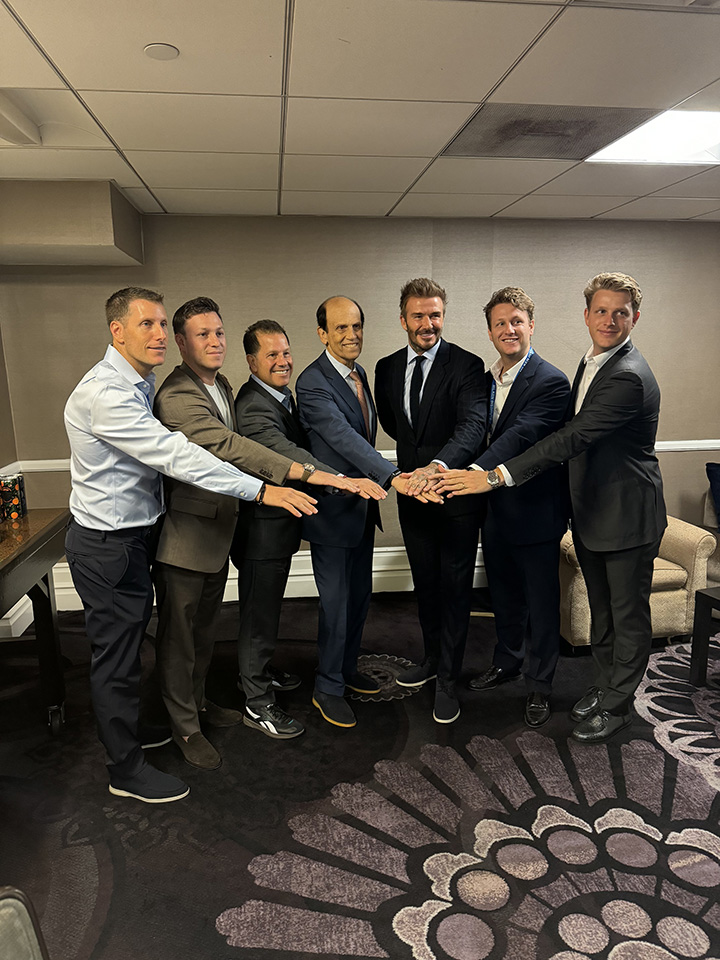
Edited by Karen Alberg Grossman, with thanks to WOR’s I Heart Media and the ABG team
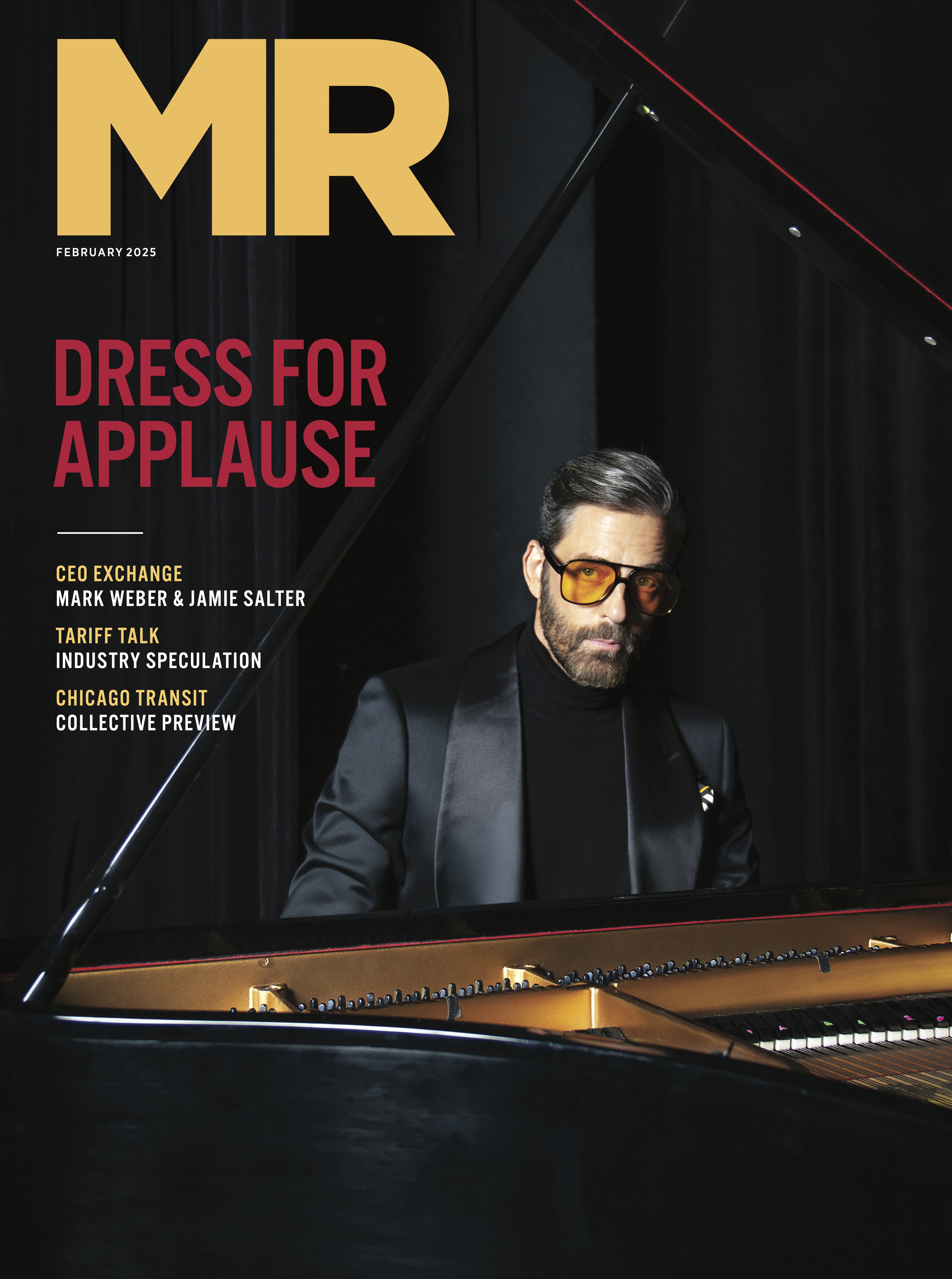

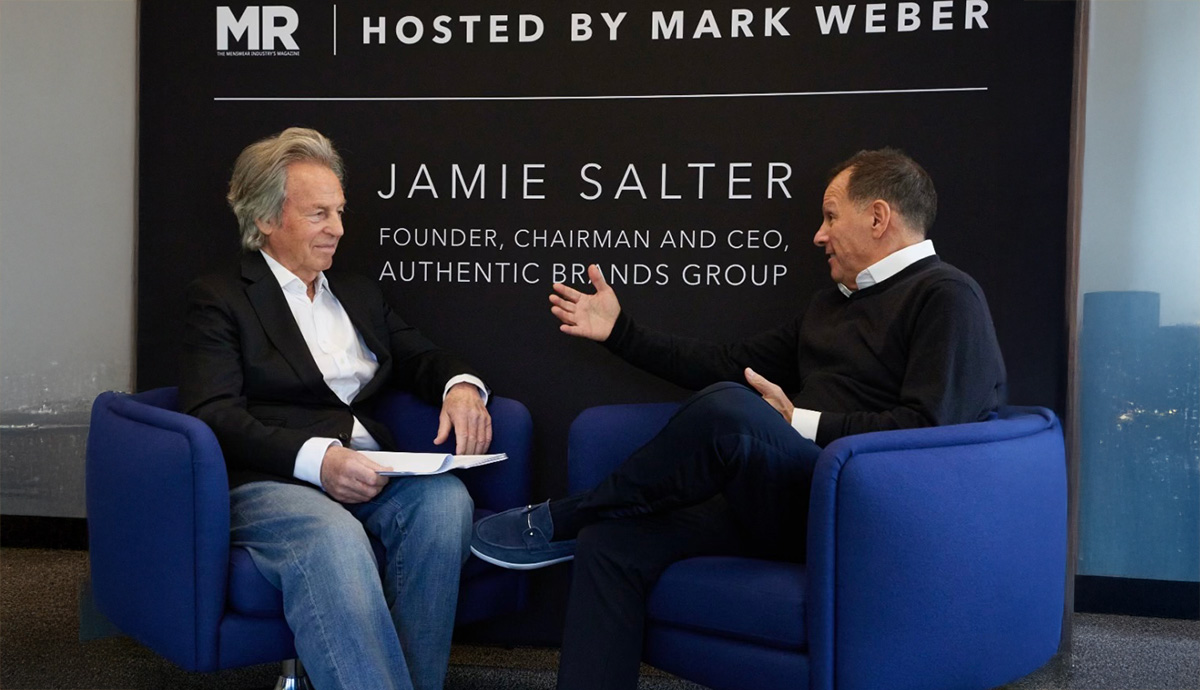
Really great interview article .
Hard work pays off , especially working with your family .